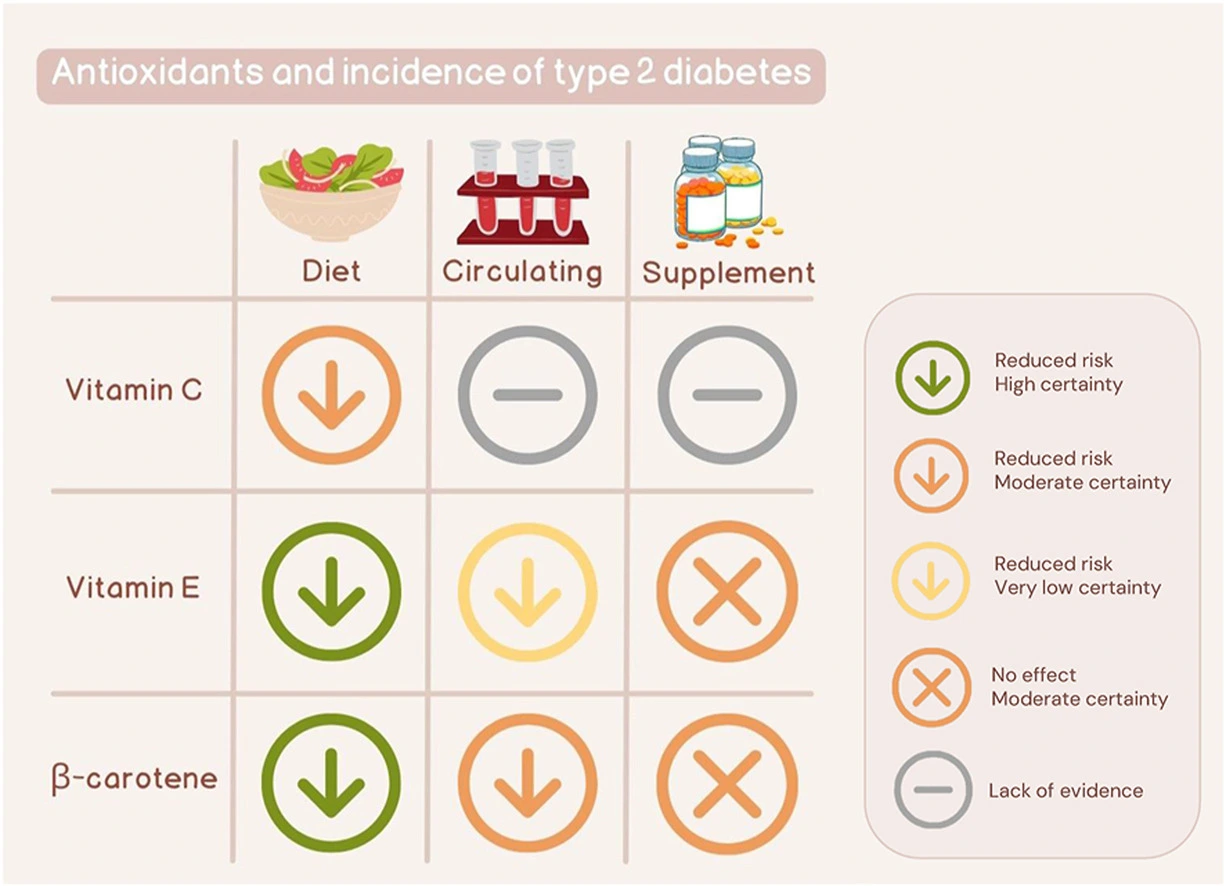Moderate intake of dietary antioxidants may lower T2D risk
A recent systematic review and meta-analysis of 25 prospective observational studies and 15 randomised controlled trials shows that a moderate intake of vitamins C and E and β-carotene may reduce the risk of T2D by mitigating insulin resistance.
Type 2 diabetes (T2D) affects more than 10% of the global population and is characterized by insulin resistance and β-cell dysfunction. Lifestyle interventions, such as diet and exercise, effectively prevent T2D by inducing weight loss. However, recent evidence suggests that healthy dietary patterns, which emphasize plant-based foods rich in antioxidants such as vitamin C, vitamin E, and β-carotene, may offer additional protection against T2D beyond weight management.
A recent systematic review and meta-analysis conducted by researchers at Karolinska Institutet aimed to assess the relationship between dietary antioxidants and T2D. The goal was to identify potential preventive measures. The study evaluated the effects of vitamin C, vitamin E, and β-carotene on T2D and related characteristics.

From a pool of 6190 articles, the researchers identified 25 prospective observational studies and 15 randomized controlled trials (RCTs) that met the inclusion criteria. The results from the observational studies showed inverse associations between dietary and circulating antioxidants and the risk of T2D. The lowest risk was observed at intakes of 70 mg/d of vitamin C, 12 mg/d of vitamin E, and 4 mg/d of β-carotene.
However, RCTs have shown that supplementation with vitamin E or β-carotene does not provide protection against T2D. There is limited data on the effects of vitamin C supplementation. The review also highlights that higher levels of dietary vitamin C and vitamin E are associated with reduced insulin resistance. The certainty of evidence was considered high for the associations between T2D and dietary intake of vitamin E and β-carotene. Still, for other associations, the certainty of evidence ranged from low to moderate.
In conclusion, the authors suggest that moderate intake of vitamins C, E, and β-carotene may reduce the risk of T2D by mitigating insulin resistance. It is important to note that the lack of protection observed with supplementation in randomized controlled trials highlights the potential importance of adequate, rather than high, intakes in T2D prevention.
First author of the new study is Anna-Maria Lampousi, doctoral researcher in the ESTRID group.
Publication
Vitamins C, E, and β-Carotene and Risk of Type 2 Diabetes: A Systematic Review and Meta-Analysis.
Lampousi AM, Lundberg T, Löfvenborg JE, Carlsson S
Adv Nutr 2024 Mar;15(5):100211
